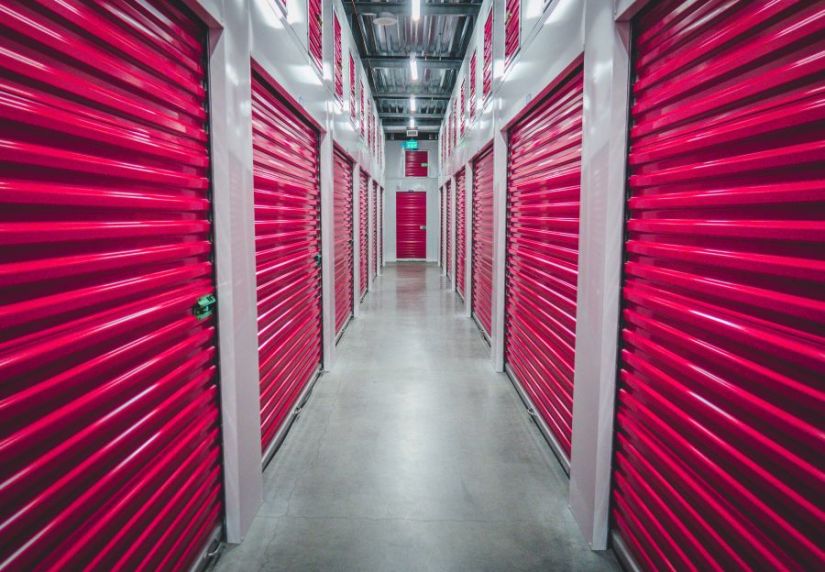Climate-Controlled vs. Non-Climate-Controlled Storage: Which is Right for You?
When choosing a storage unit, one of the most important decisions you'll make is whether you pick climate-controlled or non-climate-controlled storage. While both options keep your belongings secure, they offer different levels of protection against environmental factors. Understanding these differences can save you money and prevent potential damage to your stored items.
What is Climate-Controlled Storage?
Climate-controlled storage units maintain consistent temperature and humidity levels year-round, typically keeping temperatures between 55-85°F and humidity levels around 55%. These units are housed inside buildings with heating, ventilation, and air conditioning (HVAC) systems that protect your belongings from extreme weather conditions.
In Denton's hot Texas summers and unpredictable weather patterns, climate-controlled units provide a stable environment that prevents the dramatic temperature swings that can damage sensitive items. These units also offer protection from dust, pests, and other environmental factors that can affect non-climate-controlled spaces.
What is Non-Climate-Controlled Storage?
Non-climate-controlled storage units, also called standard or traditional storage, don't regulate temperature or humidity. These units essentially experience the same temperature and humidity fluctuations as the outside environment. While they provide excellent security and protection from theft and weather elements like rain and snow, they don't protect your belongings from temperature extremes.
These units are typically more affordable and work well for items that can withstand environmental changes without damage.
Items That Need Climate Control
Certain belongings require the stable environment that climate-controlled storage provides:
Electronics and Appliances: Computers, televisions, gaming systems, and other electronics can suffer internal damage from extreme temperatures and humidity. Condensation can cause short circuits and corrosion.
Important Documents and Photos: Paper items are highly susceptible to humidity damage. Family photos, legal documents, books, and artwork can warp, yellow, or develop mold in fluctuating conditions.
Furniture: Wood furniture can crack, warp, or split in extreme temperatures. Leather items can dry out and crack, while fabric upholstery can develop mold and mildew.
Musical Instruments: Guitars, pianos, and other instruments are particularly sensitive to temperature and humidity changes, which can affect tuning, cause wood to crack, or damage internal components.
Collectibles: Stamps, coins, wine, antiques, and other valuable collections maintain their condition and value best in stable environments.
Clothing and Textiles: Delicate fabrics, wedding dresses, and seasonal clothing benefit from climate control to prevent mold, mildew, and insect damage.
Items Suitable for Standard Storage
Non-climate-controlled units work well for items that can handle environmental fluctuations:
- Metal tools and equipment
- Outdoor furniture and grills
- Sports equipment and exercise machines
- Lawn mowers and garden tools
- Holiday decorations (artificial)
- Plastic storage containers
- Most household appliances in good condition
Cost Considerations
Climate-controlled units typically cost 20-50% more than standard units, but this investment often pays for itself by preventing damage to valuable items. Consider the replacement cost of your belongings when making this decision. If the items you're storing would be expensive to replace, the additional cost of climate control is usually worthwhile.
Making the Right Choice in Denton
Denton's climate presents unique challenges with hot, humid summers and occasional severe weather. The extreme heat can reach over 100°F, while humidity levels can fluctuate dramatically. These conditions make climate-controlled storage particularly valuable for protecting sensitive items.
At Yellow Door Storage - South Denton, we offer both climate-controlled and non-climate-controlled units to meet different storage needs and budgets. Our team can help you evaluate your specific storage requirements and choose the option that provides the best protection for your belongings.
Consider your items' sensitivity to temperature and humidity, their replacement value, and how long you plan to store them. When in doubt, climate control provides peace of mind and superior protection for your valuable possessions in Denton's challenging climate.


